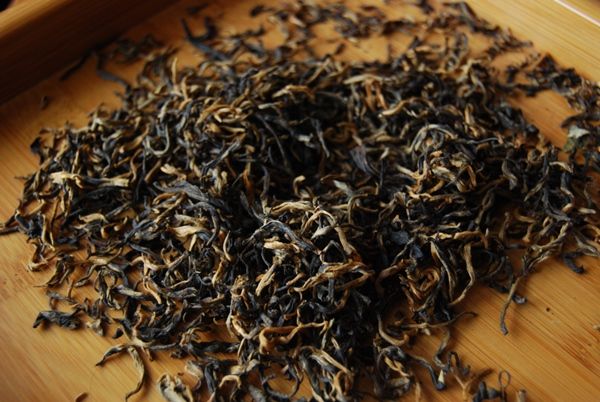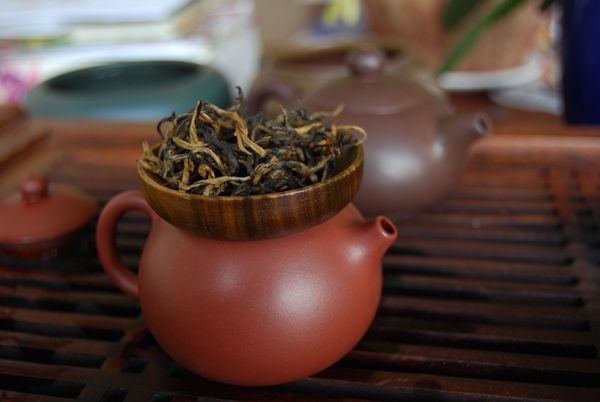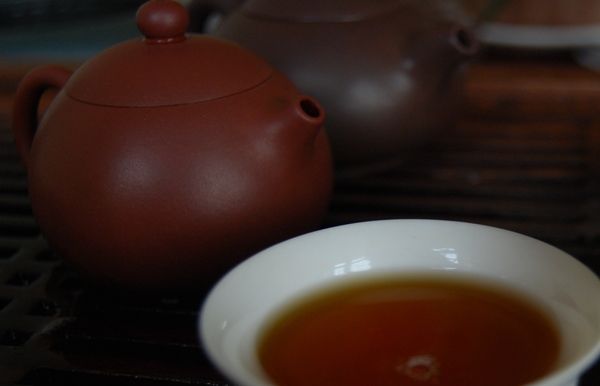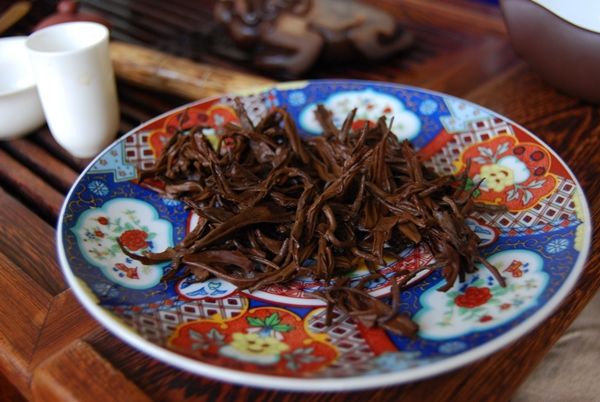Hongcha is great. I don't drink much of it, but that's because time is limited, and pu'ercha is my favourite. If I were to drink every day, then hongcha would be one of my staples.
You may, gentle Reader, recall my love of Yunnan Sourcing's recent 2011 Wuliangshan pu'ercha. This hongcha comes from the same region, and is one of 29 (!) Yunnanese hongcha sold by Scott at the time of writing.
Like all hongcha, it is a bit of a bargain: at $7/100g, even a good hongcha is a lot less expensive than [premium] pu'ercha. Unlike fussy lucha, however, you can keep hongcha: it tends to mellow a little over the course of around five years or so, and remains good. Some would say, it improves. I recall some seven-year-old hongcha that I bought in Maliandao in 2007 which was very pleasant indeed. The price of that tea was 60 RMB (now $9) in 2007.
Drinking hongcha is also a much-needed opportunity to give my Xishi pot (pictured above) some daylight.
This hongcha is unlike dianhong, the usual Yunnan variety of this type of tea. This Wuliang version is clean, sweet, high, and pure in its character. It has a pleasant sharpness in its enduring throaty sensation that is unlike the malted gentility of much hongcha, and I rather approve of its bold approach.
It is complex, too, giving a background of malted hongcha, while having thick, sweet notes. My mother is visiting, and comments, "Very tasty - caramel. This isn't like your usual tea, which tastes of old straw and smells of pig-styes."
Drinking hongha such as this makes me most happy. It is possibly a bit strong to drink every day, but it is charming. (I am attempting to make caffeine, like alcohol, a treat that I enjoy a few times per week rather than each day.)
There are few hongcha that can keep me interested for a whole session, because they tend to be monotonous, if pleasant, but this Wuliangshan Maofeng is undoubtedly one of the more textured, complex examples.





Hi!
ReplyDelete$7 per 100g leads to $25 per 357g beeng and $28 per 400g beeng. I think that even in this cruel world of trying-to-do-top-stuff sheng production, there are very good cakes to be had for that money :)
Jakub
that seems to be a massive amount of leaf. Do you know approximately how many grams of hongcha you use?
ReplyDeleteBTW the "Wild Tree Purple Varietal Black Tea of Dehong" from YS is my favorite one among the black teas I tried this year.
Norbert
Dear Jakub,
ReplyDeleteIt is a cruel world, indeed, that provides such delicious cakes for us to try. :)
Dear Norbert,
I will have a wild guess and estimate that I drink 10-12g of leaf in a session. However (!), the rather enormous pile on the pretty little plate shown in the article is merely the entire sample, kindly provided by YS.
All the best,
Hobbes